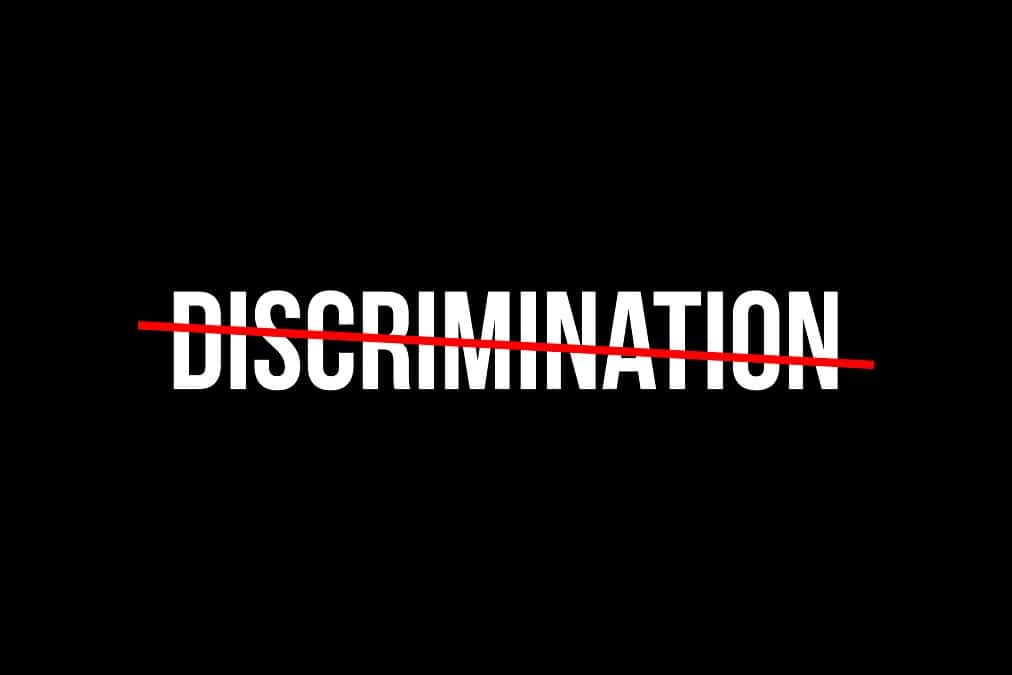What Is Discrimination?
The roots of discrimination are prejudices and stereotypes that individuals – or organisations – hold about certain groups of people. These biases can be conscious or unconscious and can lead to discriminatory actions and decisions. It is important to recognise these biases and work to overcome them to promote a more equitable and inclusive workplace.
Organisations can take steps to combat discrimination by implementing policies that promote diversity and inclusion, providing training for employees on unconscious bias, and creating a culture where all individuals feel valued and respected.
Workplace Discrimination
Workplace discrimination can take many forms. It may include:
- decisions made on the basis of things such as race, gender and religion. For example, an employer may turn down a female member of staff for promotion because they think she will want to start a family soon
- decisions that affect everybody but discriminate against certain groups
- Bullying and harassment based on protected characteristics.
It can lead to:
- unequal pay for equal work
- reduced promotion prospects
- being excluded from certain job opportunities
- anxiety and depression
- inability to carry out tasks
- reduced productivity.

Workplace discrimination can also manifest itself in more subtle ways, such as microaggressions, which are small actions or comments that can be dismissive or derogatory towards individuals. These actions also create a hostile work environment and have a negative impact on an individual’s mental health and well-being.
What is Workplace Discrimination?
Workplace discrimination is the unequal treatment of individuals based on certain protected characteristics, such as;
- Race
- Gender
- Age, or Disability.
It can express itself in many ways, including hiring decisions, promotions, pay, and working conditions. It can also lead to harassment and bullying.
Discrimination can have a negative impact on individuals, including lower pay, limited opportunities for advancement and poor mental health. It also has broader societal consequences by perpetuating inequalities and limiting the potential of individuals and society as a whole.
Types of Discrimination
UK law provides protections against discrimination in the workplace. The Equality Act 2010 prohibits discrimination based on certain “protected characteristics” These are:
- age
- disability
- gender reassignment
- marriage or civil partnership
- pregnancy and maternity
- race
- religion or belief
- sex
- sexual orientation.
However, the act also covers the following categories of discrimination:
- Direct discrimination: This occurs when an individual is treated differently and worse on the basis of a protected characteristic. For example, a woman may be passed over for a promotion in favour of a less qualified male candidate
- Indirect discrimination: This occurs when a policy or practice applies to everyone but has a disproportionate impact on individuals. For example, a contractural clause may require staff to work off-site some distance away from their normal place of work. It may mean the company can require workers to change plans at short notice. This may affect single parents with young children
- Harassment: This includes any unwanted behaviour based on the characteristics outlined above. It can include sexual harassment, verbal abuse, and physical intimidation
- Victimisation: Treating someone unfairly because they’ve complained about discrimination or harassment.
How to Report Discrimination in the Workplace
If an individual experiences discrimination in the workplace, there are several steps they can take to report it. Firstly, they should document it, and include information such as the date, time, and location of the incident. After that, they should report the incident to their employer or HR representative. Finally, asking their union for advice and support to resolve the situation is also an option.
Union Help With Workplace Discrimination
Unions play an important role in combatting discrimination in the workplace. They provide support and guidance to members who experience discrimination and advocate for their rights. Moreover, unions also provide legal support to members discriminated against at work.

Tackling Discrimination
Discrimination can and does have negative consequences for individuals and society as a whole. Therefore it is important to understand what it is and how it manifests itself.
Similarly, individuals can take steps to combat discrimination, such as speaking out, promoting diversity and inclusion, and working with a union to advocate for their rights.
Frequently Asked Questions
Under the Equality Act 2010, discrimination occurs when an individual is treated less favorably due to certain protected characteristics. These include age, disability, gender reassignment, marital status, pregnancy and maternity, race, religion or belief, sex, and sexual orientation.
If you believe you’ve been discriminated against, you should initially consult your workplace’s policies and procedures on discrimination and follow the outlined steps. You may need to file a formal complaint through your employer’s grievance procedures. Legal remedies may also be available, so consider consulting a legal advisor for your specific situation.
Even if an employer is unaware of discriminatory behavior within the workplace, they can still be held liable under UK law. Employers have a responsibility to ensure a discrimination-free work environment and to take reasonable steps to prevent discrimination.
In the UK, you usually have three months minus one day from the date of the discriminatory act to file a claim with an Employment Tribunal. However, it’s recommended to act as quickly as possible and consult a legal advisor for tailored advice.
Employers found guilty of discrimination can face a range of penalties including financial compensation to the victim, mandatory training, and changes in workplace policies. The penalties are determined based on the severity of the discrimination, the employer’s knowledge and actions, and any damage suffered by the victim.



